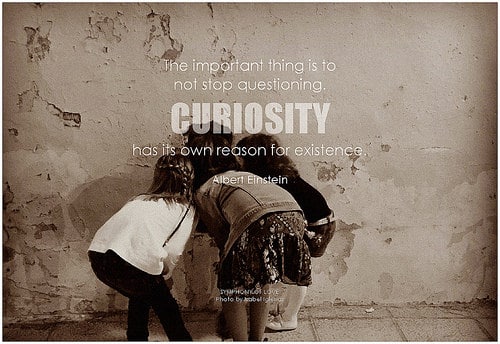What happens when a belief you have long held true and dear comes under scrutiny? When you find out that there are other people out there; people you love and trust who believe something completely different and even contradictory?
In my work with Queer Theology I’ve seen this happen over and over again. Sometimes it’s about LGBTQ issues and faith, but not always. I’ve seen it happen with different understandings of how we read the Bible, with understandings of atonement, and with understandings about how to be and do church.
Inevitably it goes down like this: Someone says something that depends on fundamentalist readings/understandings of Christianity. We gently push back and say “Actually there are a lot of other ways to read and understand those passages. Lots of faithful Christians believe something completely different.” And then, like clockwork, the explosion happens. How dare you tell me this thing that I believed for so long might not be true! How dare you cause me to question my faith! How dare you!
So we try to gently (or sometimes not so gently) point them to the resources they need to continue to do their work. But every time it gets me thinking: Is there a better way to deal with a situation where your beliefs are called into question? I think there is.
The root of these explosions comes from anxiety. From the anxiety of having your beliefs questioned to the anxiety of the unknown should you choose to let go of long-held beliefs. This anxiety usually comes out in the form of lashing out and anger at the person who has brought up a new way to think. We see this happening not just in the confines of Queer Theology and faith issues but also around issues of race, of privilege, of politics.
What happens when a belief you have long held to be true gets called into question?
You have a couple of options: You can double down and hold onto your original belief even harder. You can get defensive and shout at the people who dared to call your belief into question. You can shout louder about how you are right and no one can make you stop believing what you believe! These are options we see played out over and over again. And yet. What often happens is that even if you push away the people who called your beloved belief into question that doubt still lingers. And it makes you angrier and more anxious. You can try to push it away. You might even succeed. But there might be a better option.
Option two: You can get curious. About your own reaction and defensiveness. About why you’re feeling so much anxiety. About why this belief is so important to you in the first place. About the new information, you’re being presented with. About why that’s causing you anxiety. About what other people believe and why.
At the end of all of this curiosity, you might still decide to hold on to your original belief but if you do you’ll know deep down that it resonates with you and is coming from a place of truth and not that it’s just something you believed because you didn’t know there were other options. You’ll also know that you listened and learned something and that by investigating the new information you have also learned something about your original beliefs.
You will also have earned respect by listening to another person, asking questions, and being curious about why they believe what they believe. You might be able to develop some empathy for other people who believe differently.
I cannot tell you the amount of times that people have said to me “If I change my belief on that then what’s the point of even being a Christian?” And my response is always the same: “If the only reason you are a Christian is because you are afraid of what happens if you’re not then you shouldn’t be a Christian.” Beliefs based on fear: fear of hell, fear of damnation, fear of a bully daddy God in the sky, fear of alienation from your community (your family, church, friends) are toxic and hurtful. Yes, wading through the anxiety is painful and hard. Yes, you might lose connections to people you once had. Yes, you might have to relearn how to be in the world. But when you do you will find your life filled with people who love you not because you toe the line but because they love you for you. You will find a faith that is about doing and being something good in the world and not about escaping wrath. You will find a relationship with God that is based on love and not fear. You will believe things not because you are afraid you’ll be punished if you don’t but because you actually believe they are true.
So get curious. Lean into the anxiety and not away from it. Ask questions. Ask a lot of questions. Read some books or articles. Expand your circle of thinking. Find out what you really believe (and what you might be able to believe if only you had known it was an option). Curiosity will save you. If you let it.

